Full and Partial Dentures
Restore your smile with full or partial dentures.
Denture solutions that not only look great but also fit perfectly, so you can eat, speak and smile with confidence. Our team has the expertise and the experience to make the process smooth and comfortable.

Made in Canada.
Custom design & fit.
Partial Dentures
These dental appliances are used to fill gaps created by missing teeth. Unlike a full denture, partials are anchored to adjacent teeth and are removable for cleaning. Partial dentures improve a patient’s ability to chew and speak while also restoring the appearance of a healthy smile.
When are partial dentures recommended?
High-quality partial dentures are often recommended for the following situations:
To replace multiple teeth
To prevent teeth from shifting
To restore function (chewing & speaking)
To prevent facial sagging
Aesthetic restorations
Your dentist will determine whether dental crowns are the best restoration option for your situation or if procedures such as dental veneers or dental implants would provide a better treatment outcome.
Full (Complete) Dentures
Full or complete dentures are used to replace an entire row of missing teeth in the upper or lower jaw. These removable appliances consist of a full set of artificial teeth attached to a gum-coloured acrylic base. Dentures are custom made to fit the patients mouth and resemble natural teeth for a natural looking smile.
When are full dentures recommended?
Full or complete dentures are often used in the following circumstances:
Total tooth loss in the upper or lower jaw (or both)
Structural and aesthetic requirements
Dental implants aren’t suitable
The upper denture usually covers the roof of the mouth, while a lower denture will be horseshoe shaped to accommodate the tongue. Dentures are usually held in place by suction or with the aid of a dental adhesive. A precise fit is required for proper function, which may take several check-ups to fine tune correctly.
Your new dentures in 4 simple steps

The first step is a comprehensive dental examination, where the dentist evaluates the patient’s oral health, discusses medical history, and determines the suitability for dentures. This appointment may include X-rays or dental impressions.
Precise impressions (molds) of the jaw and remaining gums are taken. These molds are crucial for creating dentures that fit comfortably and accurately. The dentist will then measure how the jaws fit together and take records of the shape of the natural teeth to create a denture that looks natural and fits well.
The impressions and measurements are sent to a dental lab where the dentures are made. This process typically takes around two weeks. Patients are given a set of temporary dentures to wear until their own come back from the lab.
Once the dentures are ready, the patient will have a fitting appointment. During this time, the dentist will check the fit, make adjustments as necessary, and provide instructions on how to wear and care for the dentures.
Which is the better option, dentures or dental implants?
Both dentures and dental implants are solutions to replace missing teeth; however, they solve the problem in very different ways.
Dentures are removable devices that offer a non-surgical option suitable for individuals who cannot undergo surgical procedures. Dentures are a cost-effective way to help patients regain oral function and enhance their facial aesthetics. However, they require cleaning and maintenance and are prone to stability issues (loose fitting dentures).
Dental implants entail a surgical process that implants titanium posts into the jawbone, acting as a foundation for replacement teeth. These will act like natural teeth in both functions and look, without the hassles of removable dentures. Implants also help maintain jawbone health, which dentures don’t do.
That said, dental implants are more expensive and require invasive surgery and a recovery period, which may not be possible for every patient.
The decision to opt for dentures or implants should be based on personal health needs, financial considerations, and daily comfort and practicality preferences. Our dentists are experts and will help guide you to the correct decision.
Why choose us for dental crowns & bridges?
Our expertise
Our experience
Our quality
Our skilled dental professionals and staff are experts in crown and bridge procedures. Our office specializes in restoring and enhancing smiles using the latest techniques and technology to ensure functional and aesthetically pleasing dental restorations.
Our team has the experience to provide personalized solutions that blend seamlessly with your natural teeth. From the first consultation to the final fitting, our team knows how to make the procedure process hassle-free and successful.
We understand the importance of function and aesthetics, which is why we use only the highest-quality materials and cutting-edge techniques. Our smile restoration work ensures every patient leaves our clinic with a stronger, more beautiful smile.
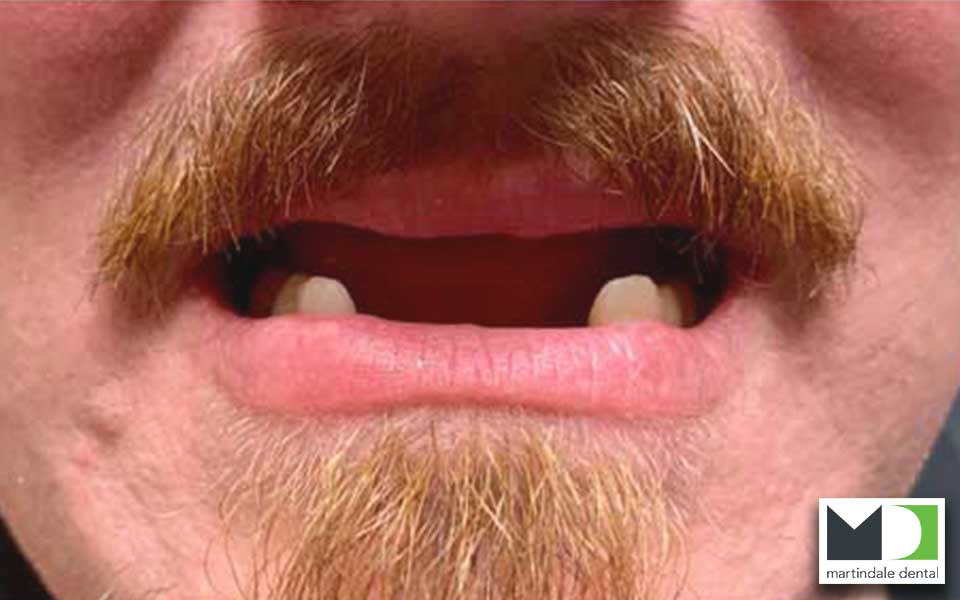
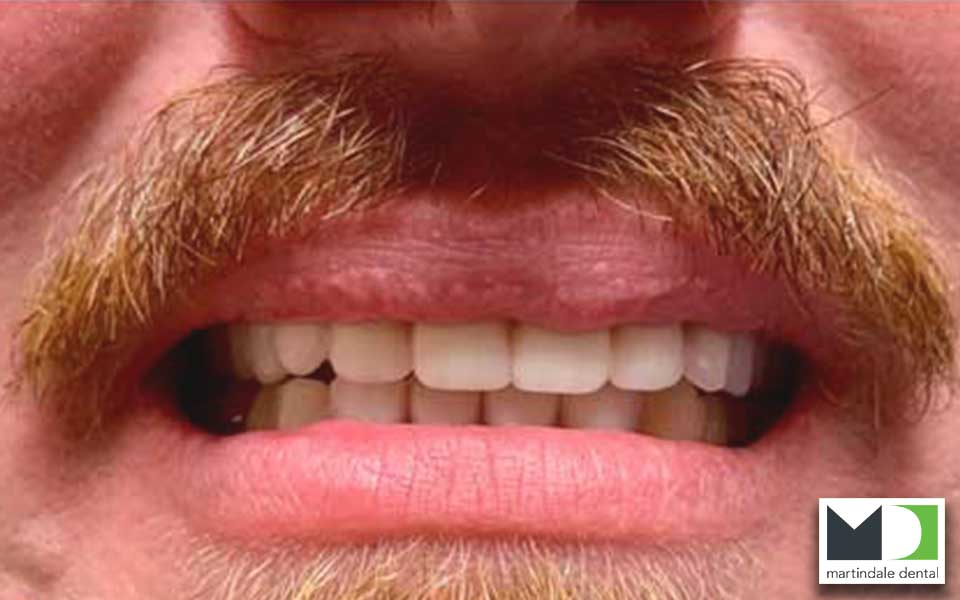
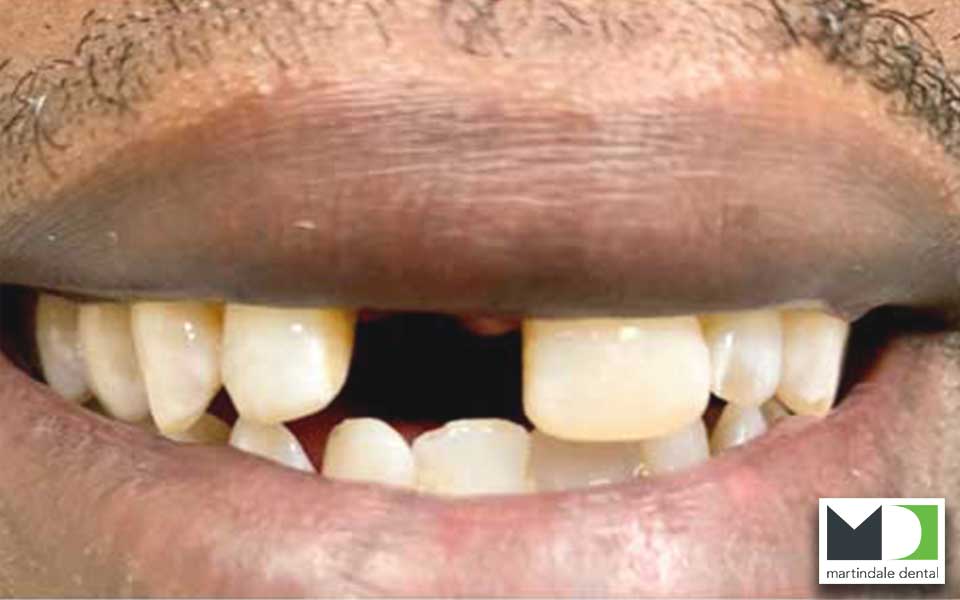
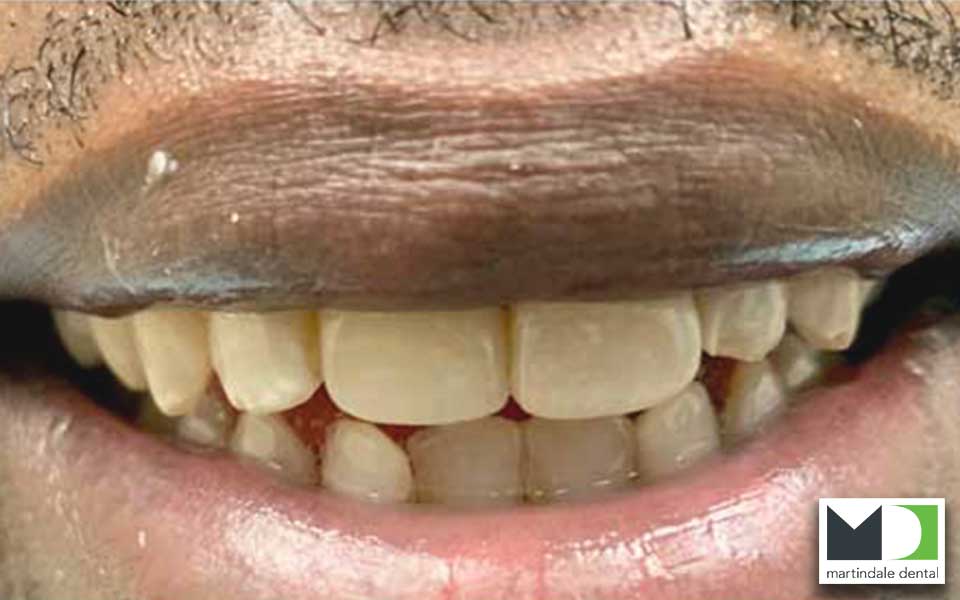
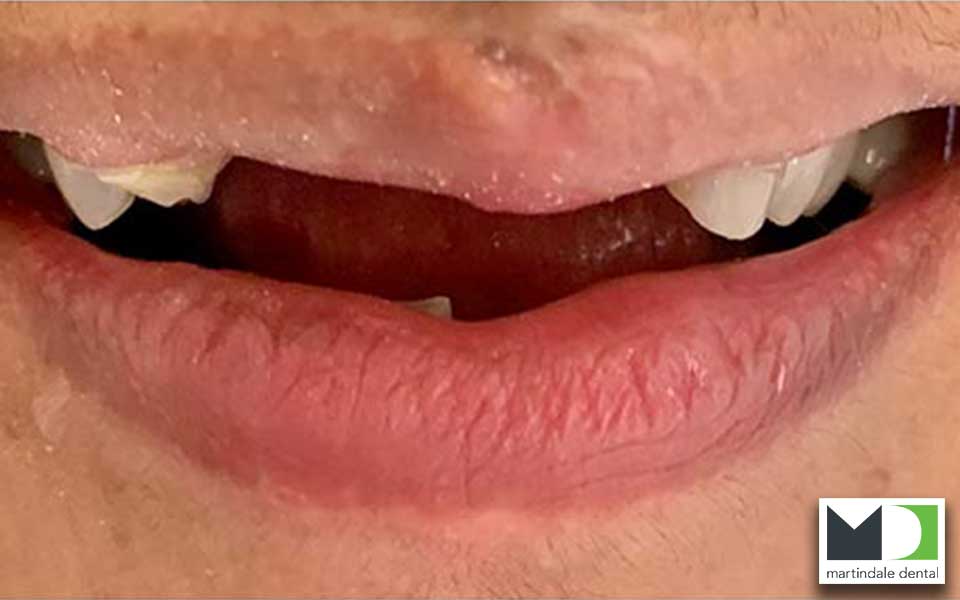
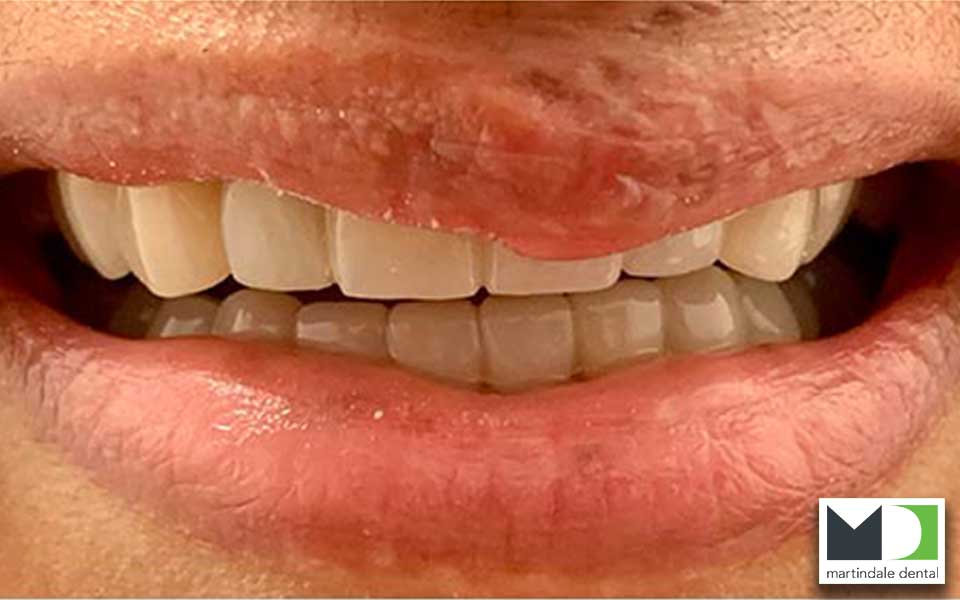
Properly designed dentures are very difficult to notice because they are made to mimic your natural teeth in shape and colour. Partial dentures, or those replacing molars, are easier to blend in, while full dentures may stand out a bit more, especially if the gum portion of the appliance is shown. However, our technicians make excellent dentures, that look very natural and are hardly noticeable.
Dentures that are properly designed and fit correctly should not harm your gums or jawbone. However, dentures do not help stop or slow bone resorption, where the jawbone that previously supported your teeth gradually shrinks or changes shape due to lack of stimulation. This is more common with full dentures.
A well-crafted denture will last between 5 and 7 years. The lifespan depends largely on the materials used, the fit, the level of care, and how the wearer’s mouth changes over time.
Yes, of course. Dentures are removable appliances and don’t require any modifications of your mouth. You can opt for implants after wearing dentures, but keep in mind that the sooner you install implants, the better the health of your jawbone will remain (resorption).
Ready to restore
your smile?
Book your free consultation at our
Jackson Square Mall location now.
Full and Partial
Dentures
Restore your smile with full or partial dentures.
Denture solutions that not only look great but also fit perfectly so that you can eat, speak and smile with confidence. Our team has the expertise and the experience to make the process smooth and comfortable.
Made in Canada.
Custom design & fit.

Partial Dentures
These dental appliances are used to fill gaps created by missing teeth. Unlike a full denture, partials are anchored to adjacent teeth and are removable for cleaning. Partial dentures improve a patient’s ability to chew and speak while also restoring the appearance of a healthy smile.
When are partial dentures recommended?
High-quality partial dentures are often recommended for the following situations:
To replace multiple teeth
To prevent teeth from shifting
To restore function (chewing & speaking)
To prevent facial sagging
Aesthetic restorations
Your dentist will determine whether dental crowns are the best restoration option for your situation or if procedures such as dental veneers or dental implants would provide a better treatment outcome.
Full (Complete) Dentures
Full or complete dentures are used to replace an entire row of missing teeth in the upper or lower jaw. These removable appliances consist of a full set of artificial teeth attached to a gum-coloured acrylic base. Dentures are custom made to fit the patients mouth and resemble natural teeth for a natural looking smile
When are full dentures recommended?
Full or complete dentures are often used in the following circumstances:
Total tooth loss in the upper or lower jaw (or both)
Structural and aesthetic requirements
Dental implants aren’t suitable
The upper denture usually covers the roof of the mouth, while a lower denture will be horseshoe shaped to accommodate the tongue. Dentures are usually held in place by suction or with the aid of a dental adhesive. A precise fit is required for proper function, which may take several check-ups to fine tune correctly.
Your new dentures in 4 simple steps
The first step is a comprehensive dental examination, where the dentist evaluates the patient’s oral health, discusses medical history, and determines the suitability for dentures. This appointment may include X-rays or dental impressions.
Precise impressions (moulds) of the jaw and remaining gums are taken. These moulds are crucial for creating dentures that fit comfortably and accurately. The dentist will then measure how the jaws fit together and take records of the shape of the natural teeth to create a denture that looks natural and fits well.
The impressions and measurements are sent to a dental lab where the dentures are made. This process typically takes around two weeks. Patients are given a set of temporary dentures to wear until their own come back from the lab.
Once the dentures are ready, the patient will have a fitting appointment. During this time, the dentist will check the fit, make adjustments as necessary, and provide instructions on how to wear and care for the dentures.

Which is the better option, dentures or dental implants?
Both dentures and dental implants are solutions to replace missing teeth; however, they solve the problem in very different ways.
Dentures are removable devices that offer a non-surgical option suitable for individuals who cannot undergo surgical procedures. Dentures are a cost-effective way to help patients regain oral function and enhance their facial aesthetics. However, they require cleaning and maintenance and are prone to stability issues (loose fitting dentures).
Dental implants entail a surgical process that implants titanium posts into the jawbone, acting as a foundation for replacement teeth. These will act like natural teeth in both functions and look, without the hassles of removable dentures. Implants also help maintain jawbone health, which dentures don’t do.
That said, dental implants are more expensive and require invasive surgery and a recovery period, which may not be possible for every patient.
The decision to opt for dentures or implants should be based on personal health needs, financial considerations, and daily comfort and practicality preferences. Our dentists are experts and will help guide you to the correct decision.
Our expertise
Our skilled dental professionals and staff are experts in crown and bridge procedures. Our office specializes in restoring and enhancing smiles using the latest techniques and technology to ensure functional and aesthetically pleasing dental restorations.
Our experience
Our team has the experience to provide personalized solutions that blend seamlessly with your natural teeth. From the first consultation to the final fitting, our team knows how to make the procedure process hassle-free and successful.
Our quality
We understand the importance of function and aesthetics, which is why we use only the highest-quality materials and cutting-edge techniques. Our smile restoration work ensures every patient leaves our clinic with a stronger, more beautiful smile.






Dental crowns and bridges FAQ
One of the key aspects of a successful crown or bridge procedure is the seamless transition between your artificial and natural teeth. Crowns and bridges are fitted over your teeth and are almost indistinguishable from your other teeth. Each one of our restorations is designed to look natural so that people won’t know the difference (unless you tell them).
Properly designed and fit dentures should not harm your gums or jawbone. However, dentures do not help stop or slow bone resorption, where the jawbone that previously supported your teeth gradually shrinks or changes shape due to lack of stimulation. This is more common with complete dentures.
A well-crafted denture will last between 5 and 7 years. The lifespan depends largely on the materials used, the fit, the level of care, and how the wearer’s mouth changes over time.
Yes, of course. Dentures are removable appliances and don’t require any modifications of your mouth. You can opt for implants after wearing dentures, but keep in mind that the sooner you install implants, the better the health of your jawbone will remain (resorption).
Ready to restore
your smile?
Book your free consultation at our
Jackson Square Mall location now.
